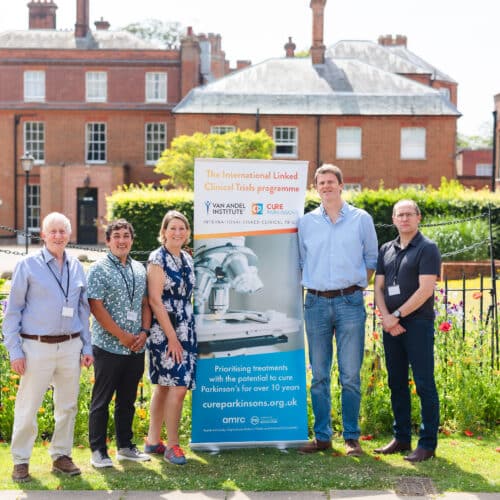The STEADY-PD Trial Results

Cure Parkinson’s recently approved funding for a project with Associate Professor Antony Cooper, Garvan Institute, Sydney.
The project aimed to determine if there is a group of people with idiopathic Parkinson’s (where the cause is unknown) who have a deficiency of their GBA enzyme GCase (glucocerebrosidase) because of DNA changes outside of the GBA gene. It is predicted that these idiopathic Parkinson’s individuals could benefit from the new therapies that are being developed for the genetic form of the condition – GBA Parkinson’s.
In people with a GBA deficiency, particularly those with GBA gene mutation Parkinson’s, there is a decrease in activity of the GCase enzyme which helps cells dispose of unwanted and potentially toxic surplus material. Dr Cooper is predicting that his research will identify people with Parkinson’s who also have poor GCase enzyme activity but who don’t have a mutation in the GBA gene.
Dr Cooper’s research will use large clinical and genomic datasets, held at the National Institutes of Health in the US, of people with both genetic and idiopathic Parkinson’s and healthy individuals, to test whether other changes in their DNA might cause an individual to make less GBA. These small variations in their DNA might impact how Parkinson’s presents in different people. By comparing data from GBA and idiopathic Parkinson’s in this way, we will have a clearer understanding of this stratified group and be able to determine if there is a larger cohort of people with lowered G-Case enzyme activity who might benefit from new treatments targeted to this aspect of Parkinson’s.
This project will also provide a clearer indication of the potential to predict clinical outcomes and help with more direct patient selection criteria for future clinical trials investigating GBA therapeutics in PD.




